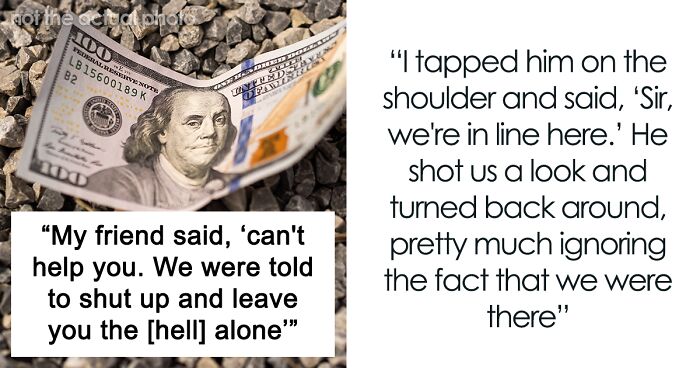
Entitled Man Cuts In Line And Yells At A Kid At Food Court, Loses $147 Due To His Rudeness
Good etiquette dictates that we should be polite to others. That includes not cutting in line, talking with strangers politely, and generally treating others the way you would want them to treat you. The adults in this Redditor’s story either didn’t get the memo or were having a really bad day.
The user skwerlmasta75 shared an instance from his teenage years on r/MaliciousCompliance. Karma rewarded this ’90s kid with some cash for his attempts to be polite. And the rude man and woman also learned a lesson. Entitled and crude behavior might only result in you losing cash.
It’s nice when people do what you say. But sometimes you have to be careful with your words when you’re angry
Image credits: Angelov1 / Envato (not the actual photo)
This man shared a story from his teenage years where he did exactly what a rude man told him to do and got $147 for it
Image credits: Image-Source / Envato (not the actual photo)
Image credits: skwerlmasta75
To return excess change or to not return it, that is the question
Image credits: Chinmay Singh / Pexels (not the actual photo)
Most commenters deemed the OP right in both situations. It’s true, dealing with rude people is never pleasant. And it feels oh-so-good when karma rewards them accordingly.
Naturally, being courteous to people who are yelling and acting as if they know better feels annoying at the least. When people refuse to hear you, there’s nothing you can do. And it’s just like the OP said, patience has its limit – people shouldn’t be doormats for the rude.
On the other hand, let’s play devil’s advocate. What’s the proper way to react when you encounter a decent amount of cash on the floor? Do you get to grab it because the owner of said cash is a jerk to you? Do you not leave the cashier the money you technically owe? Even if she’s being a know-it-all and refusing to take it?
It’s an ethical dilemma, and maybe there is no right answer. ABC News conducted an experiment in 2009. They watched how 46 people got too much change in a New Jersey Diner and recorded their reactions. 18 out of the 46 returned it to the cash register, but 26 walked out with the money.
Some people who returned the money claimed it’s just the right thing to do. One of the good samaritans, Jerry Frain, told ABC News: “I’m an Irish-Catholic and my mother always told me if I stole, I’d go to hell… You never forget those things.”
Another man, Joseph Sergi, noticed the excess change and returned it right away. He said he did it out of empathy for the cashier: “I know from past experience… the cashier always has to pay if she makes a mistake.”
However, this experiment and OP’s situations are different. Is it really stealing if the cashier insists she counted it right and refuses to listen? That’s a gray area that depends on the person’s understanding of ethics, and there is no definite answer.
Is not returning found money legally a crime?
Image credits: Lukas / Pexels (not the actual photo)
The situation OP describes doesn’t happen very often. It’s much more likely you’ll find cash on accident. Let’s say you find $100 on the street. Can you just keep it or might there be some legal implications?
If we’re in the UK, based on Section 1 of the Theft Act 1968, there might as well be. Its definition of theft, according to law firm Stephensons, is “the dishonest appropriation of property belonging to another with the intention of permanently depriving the owner of it.”
Solicitor Sean Joyce claims that picking up someone else’s cash on the street fulfills this definition. “The law requires someone who finds property (including cash) to make enquiries as to who the owner is and then make efforts to return it to them where possible.” The finder of the cash might not need to return it only if the property has been ‘abandoned’ or nobody claims it.
If we’re in the US, similar laws apply. If it is possible to identify the owner of the money, you have to return it. If the owner is unknown, then the finder has to contact law enforcement. If the owner doesn’t claim the money, the finder can keep it.
HG explains the reasoning behind this: “Everyone ever accused of theft would just claim that they found the stolen property if there was not this legal obligation to try to return lost things to their owners.”
Commenters praised the OP for maliciously complying and shared some stories of their own
I started to laugh when I read that, but unfortunately that caused me to crumble into dust due to my exceedingly advanced age (54).
Load More Replies...Anyone who thinks he stole money clearly can't read that he tried, in both incidents, to return the money... infact, he was respectful enough to listen to and adhere to their wishes... to shut up and leave them alone. Glad he got extra spending money for trying to do the right thing.
I started to laugh when I read that, but unfortunately that caused me to crumble into dust due to my exceedingly advanced age (54).
Load More Replies...Anyone who thinks he stole money clearly can't read that he tried, in both incidents, to return the money... infact, he was respectful enough to listen to and adhere to their wishes... to shut up and leave them alone. Glad he got extra spending money for trying to do the right thing.

 Dark Mode
Dark Mode 

 No fees, cancel anytime
No fees, cancel anytime 


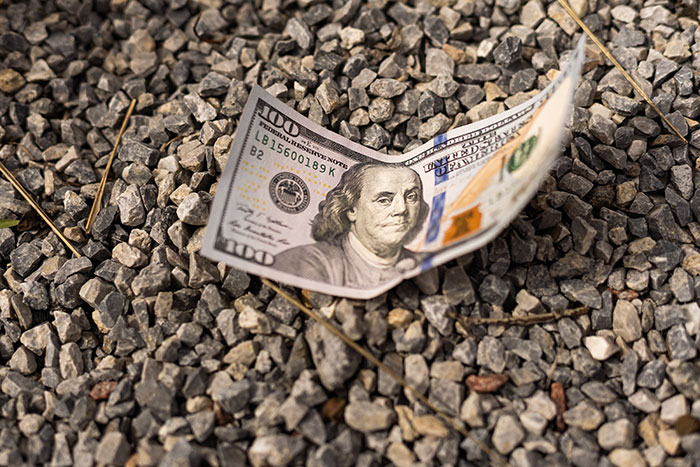
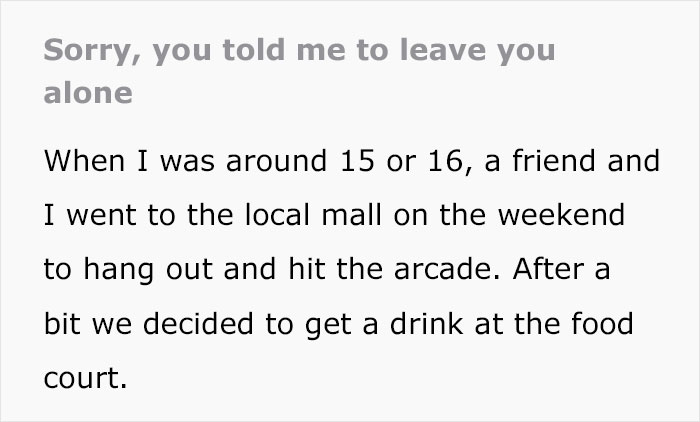
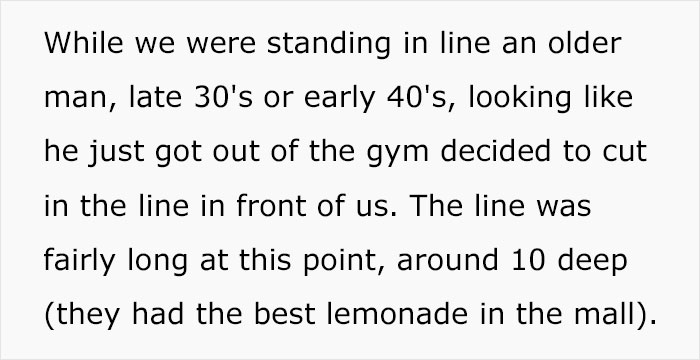
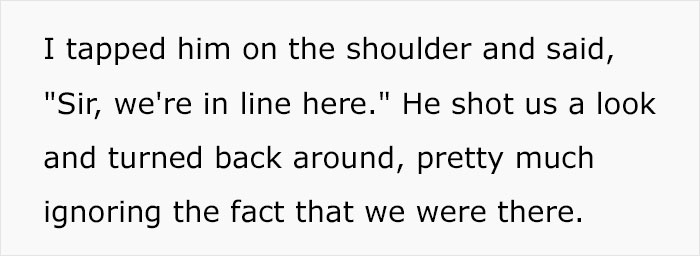
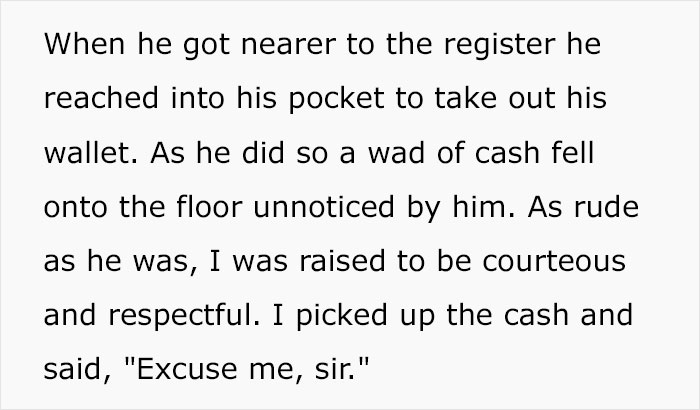
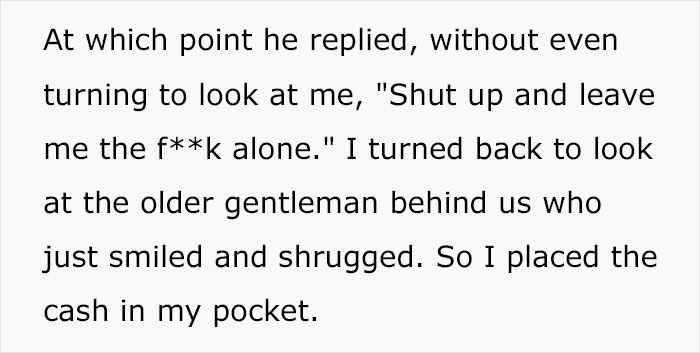
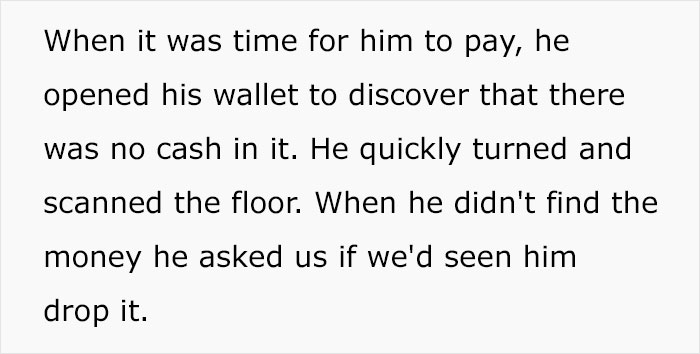
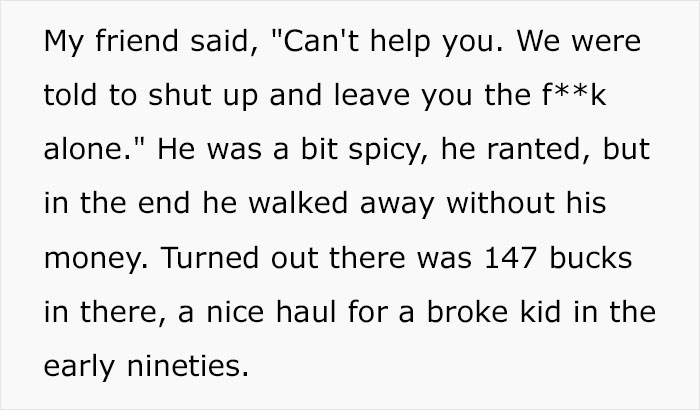

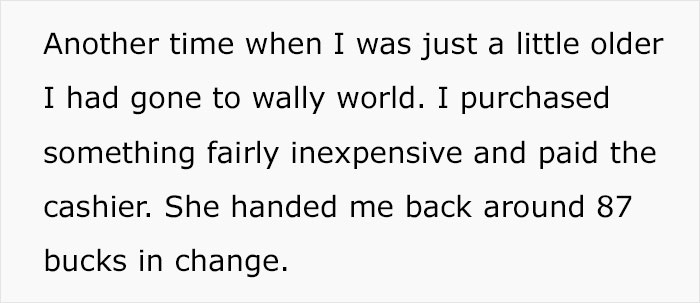
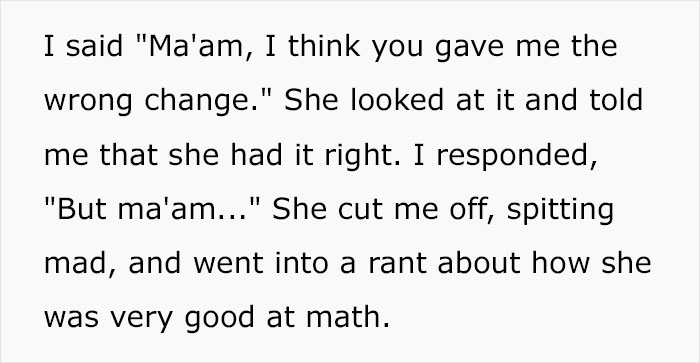
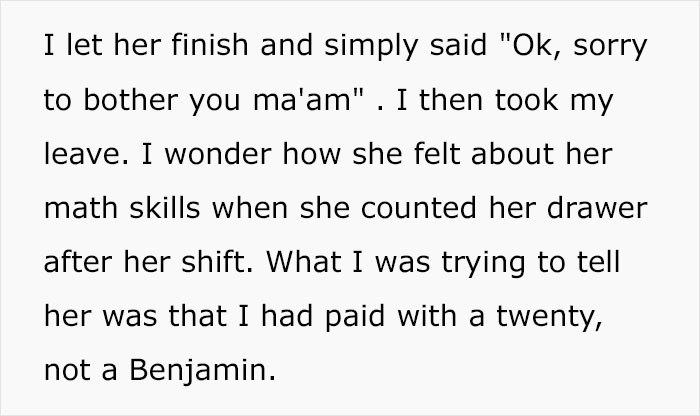


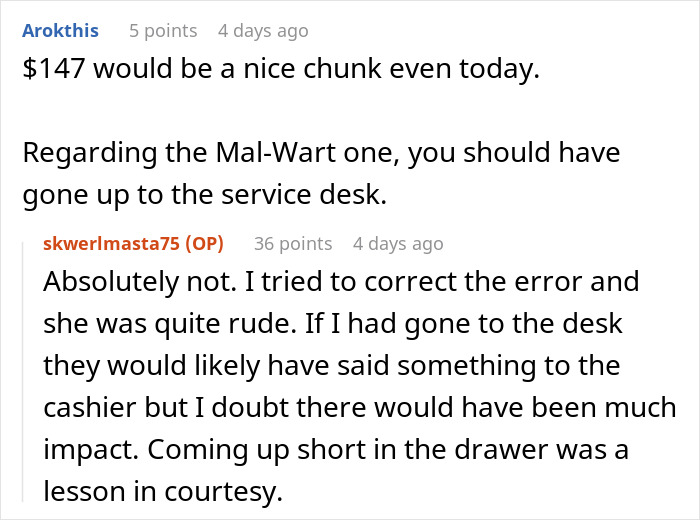



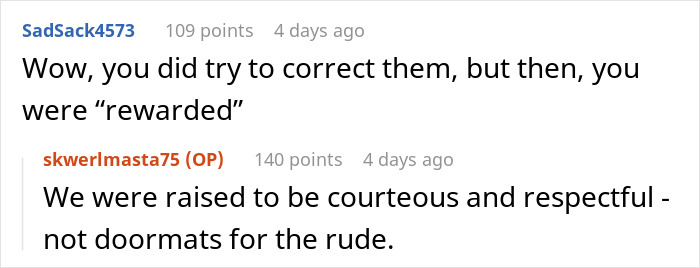


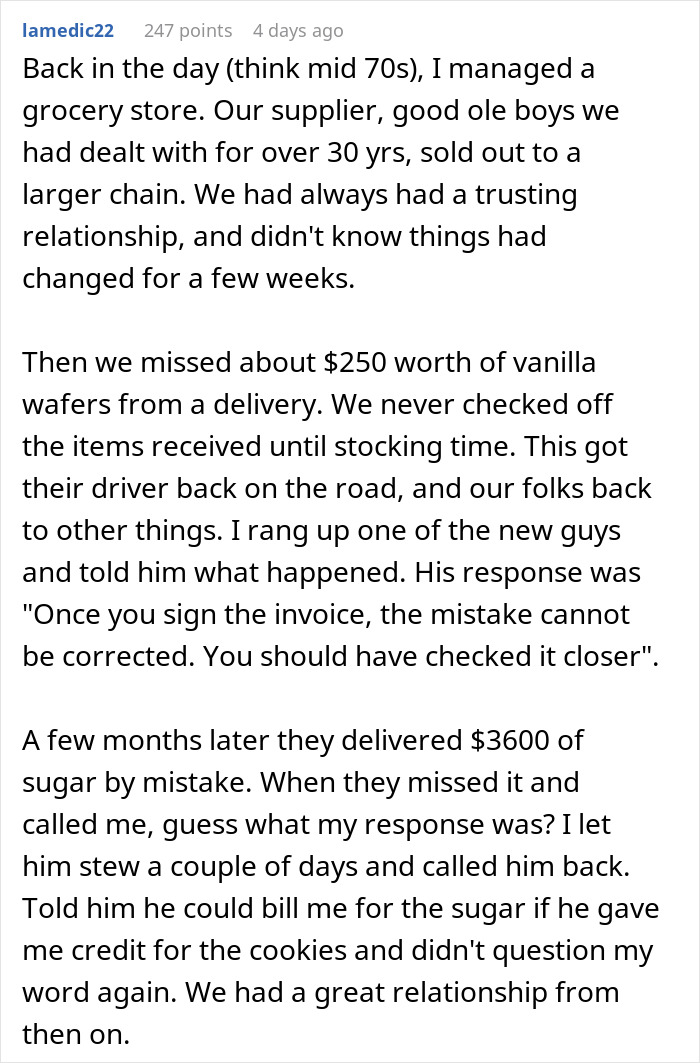














































73
23